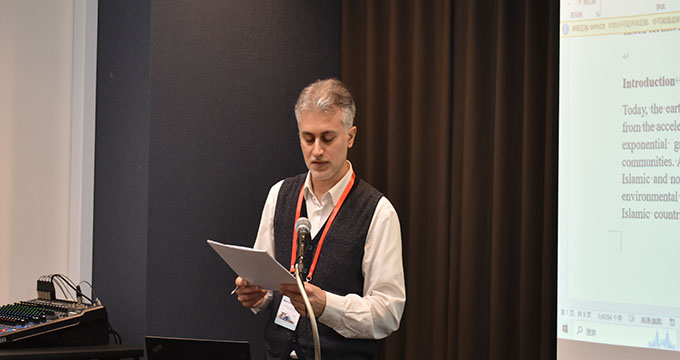

455 views||Release time: Dec 17, 2024
The peer review process for academic conference papers is critical for ensuring the quality and relevance of the research presented. Reviewers assess papers based on a set of standard criteria that reflect the academic rigor, innovation, and potential impact of the work. Below are the common academic conference paper review criteria that both authors and reviewers should consider.

The first key criterion is whether the paper aligns with the conference’s theme or topic.
Importance of Relevance:
Papers that directly address the conference’s focus are more likely to be accepted. Reviewers evaluate whether the research fits within the scope of the conference and contributes to the ongoing academic conversation in that field.
Recommendation for Authors:
Ensure that your paper addresses the core themes of the conference. Read the conference guidelines thoroughly and tailor your submission accordingly.
Questions Reviewers Ask:
The level of originality and innovation is a fundamental criterion in evaluating academic papers. Reviewers look for new ideas, concepts, or approaches that contribute to advancing knowledge in the field.
Importance of Originality:
Innovative research offers fresh perspectives or uncovers new data, techniques, or theories. It can challenge existing paradigms or present new ways of thinking.
Recommendation for Authors:
Focus on presenting novel findings, unique methodologies, or creative solutions to established problems. Avoid submitting work that merely replicates existing studies unless it offers a new angle or improvement.
Questions Reviewers Ask:
The quality of the research and the rigor of the methodology are crucial aspects of academic papers. Reviewers assess the appropriateness and robustness of the research design, data collection, analysis, and conclusions.
Importance of Research Rigor:
Solid research methods lead to reliable and valid results. This includes clear hypotheses, appropriate methodologies, and sound data analysis techniques.
Recommendation for Authors:
Ensure that your research design is well thought out and that the methods you used are appropriate for answering your research questions. Make sure to provide enough detail for others to replicate your study.
Questions Reviewers Ask:
The clarity and structure of the paper play a significant role in the review process. A well-organized paper ensures that the research is easily understandable and flows logically from one section to the next.
Importance of Clarity:
Papers should be clearly written, with concise explanations of complex concepts. Logical flow between sections (introduction, methodology, results, and conclusion) is important to maintain the reader’s engagement.
Recommendation for Authors:
Organize your paper according to conventional academic structures. Use headings and subheadings to divide sections clearly. Be precise in your writing, avoiding jargon unless it is essential to the research topic.
Questions Reviewers Ask:
The paper should make a meaningful contribution to the field by advancing knowledge, proposing solutions, or suggesting new avenues for research.
Importance of Contribution:
Reviewers assess whether the paper has significant implications for theory, practice, or further research. Papers that push the boundaries of current knowledge or spark future investigations are highly valued.
Recommendation for Authors:
Clearly articulate the significance of your work and its potential impact. Discuss how your research fills gaps in the existing literature or opens new lines of inquiry.
Questions Reviewers Ask:
The quality of writing and presentation are also significant factors. This includes grammar, spelling, and the ability to convey complex ideas in a clear and concise manner.
Importance of Writing Quality:
Well-written papers are easier to understand and engage with. Clear writing demonstrates professionalism and attention to detail, which is essential in academic work.
Recommendation for Authors:
Proofread your paper for clarity, spelling, and grammatical errors. Use appropriate academic language and ensure that your sentences and paragraphs are concise and precise.
Questions Reviewers Ask:
Reviewers often assess whether the research has practical implications or can be applied in real-world settings.
Importance of Application:
Academic research is not only about contributing to theoretical knowledge but also about addressing real-world issues. Papers that suggest practical solutions or policy recommendations are often favored.
Recommendation for Authors:
If your research has practical implications, make sure to highlight them. Discuss how your findings can be used in practice or applied to solve specific problems.
Questions Reviewers Ask:
A comprehensive literature review demonstrates a deep understanding of existing research and contextualizes your study within the broader academic conversation.
Importance of Literature Review:
Reviewers expect to see that your research builds on or challenges existing work. A strong literature review not only cites relevant studies but also identifies gaps that your research aims to address.
Recommendation for Authors:
Conduct a thorough literature review and cite relevant and recent works. Be sure to reference seminal studies as well as contemporary research in your area.
Questions Reviewers Ask:
Academic research must adhere to ethical standards, including honesty in reporting results, proper citation practices, and respect for participants’ privacy and consent (if applicable).
Importance of Ethics:
Ethical research is foundational to maintaining integrity in academic work. Reviewers check that ethical guidelines are followed and that there is transparency in the research process.
Recommendation for Authors:
Make sure your paper complies with ethical standards, whether it involves the use of human subjects, animal testing, or research involving data privacy. Ensure that all sources are properly cited.
Questions Reviewers Ask:
By adhering to these academic conference paper review criteria, authors can improve the quality and impact of their research submissions. Reviewers assess papers on a combination of factors, including relevance, originality, methodology, clarity, and contribution to the field. Understanding these criteria and addressing them in your paper will increase your chances of acceptance at conferences.
Find more academic conferences where you can present your research and get your work evaluated by leading experts. Visit iconf.com to stay updated on upcoming conferences and call for papers.
Submit your paper to iconf.com today!